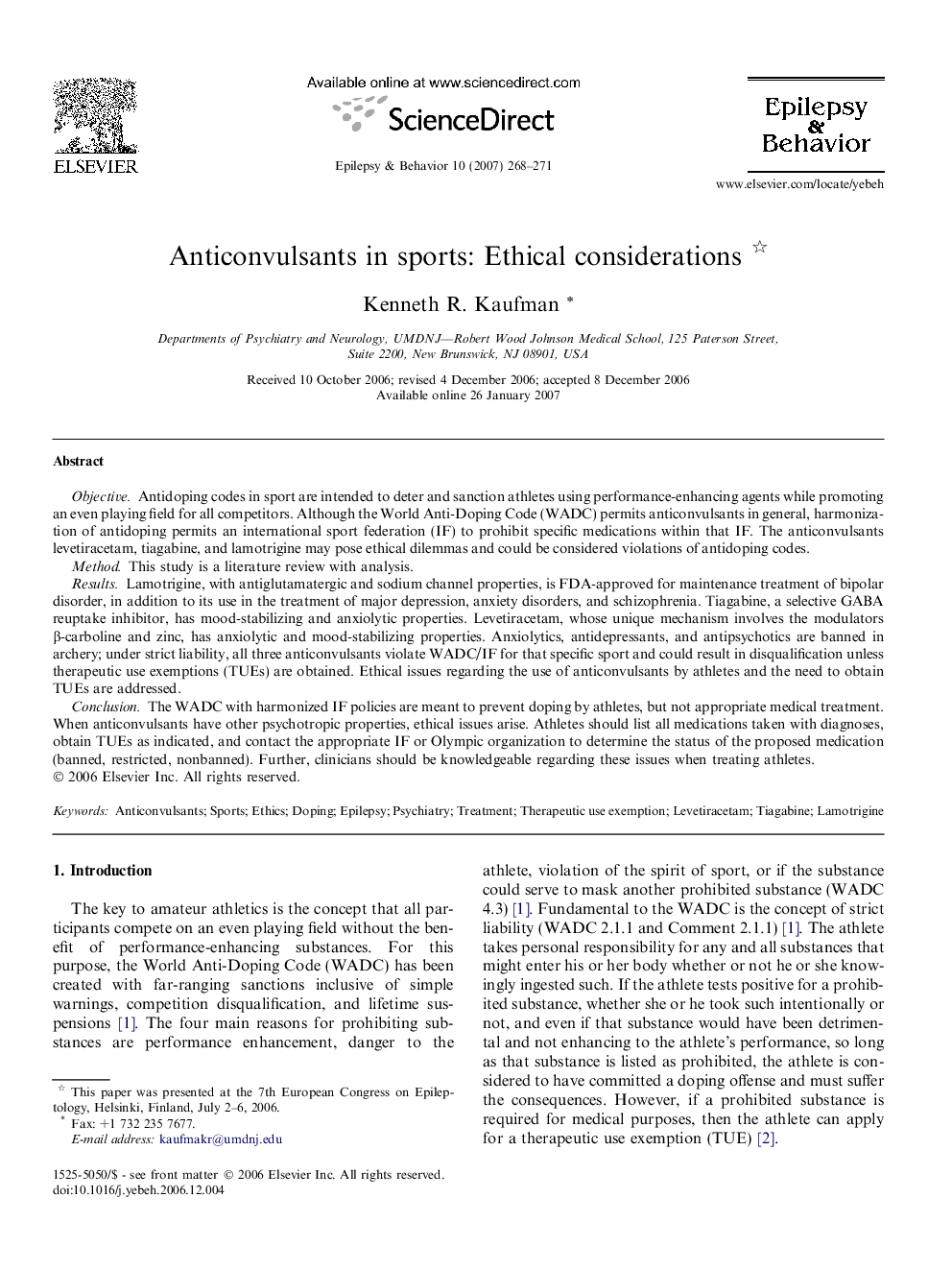| کد مقاله | کد نشریه | سال انتشار | مقاله انگلیسی | نسخه تمام متن |
|---|---|---|---|---|
| 3051373 | 1185982 | 2007 | 4 صفحه PDF | دانلود رایگان |

ObjectiveAntidoping codes in sport are intended to deter and sanction athletes using performance-enhancing agents while promoting an even playing field for all competitors. Although the World Anti-Doping Code (WADC) permits anticonvulsants in general, harmonization of antidoping permits an international sport federation (IF) to prohibit specific medications within that IF. The anticonvulsants levetiracetam, tiagabine, and lamotrigine may pose ethical dilemmas and could be considered violations of antidoping codes.MethodThis study is a literature review with analysis.ResultsLamotrigine, with antiglutamatergic and sodium channel properties, is FDA-approved for maintenance treatment of bipolar disorder, in addition to its use in the treatment of major depression, anxiety disorders, and schizophrenia. Tiagabine, a selective GABA reuptake inhibitor, has mood-stabilizing and anxiolytic properties. Levetiracetam, whose unique mechanism involves the modulators β-carboline and zinc, has anxiolytic and mood-stabilizing properties. Anxiolytics, antidepressants, and antipsychotics are banned in archery; under strict liability, all three anticonvulsants violate WADC/IF for that specific sport and could result in disqualification unless therapeutic use exemptions (TUEs) are obtained. Ethical issues regarding the use of anticonvulsants by athletes and the need to obtain TUEs are addressed.ConclusionThe WADC with harmonized IF policies are meant to prevent doping by athletes, but not appropriate medical treatment. When anticonvulsants have other psychotropic properties, ethical issues arise. Athletes should list all medications taken with diagnoses, obtain TUEs as indicated, and contact the appropriate IF or Olympic organization to determine the status of the proposed medication (banned, restricted, nonbanned). Further, clinicians should be knowledgeable regarding these issues when treating athletes.
Journal: Epilepsy & Behavior - Volume 10, Issue 2, March 2007, Pages 268–271